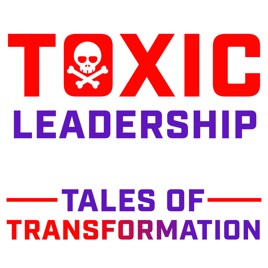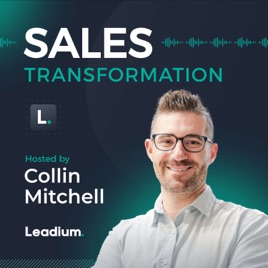
Advertise on podcast: Decoder with Nilay Patel
Rating
4.1 from
Country
This podcast has
725 episodes
Language
Publisher
Explicit
No
Date created
2015/06/24
Average duration
59 min.
Release period
7 days
Description
Decoder is a show from The Verge about big ideas — and other problems. Verge editor-in-chief Nilay Patel talks to a diverse cast of innovators and policymakers at the frontiers of business and technology to reveal how they’re navigating an ever-changing landscape, what keeps them up at night, and what it all means for our shared future.
Social media
Check Decoder with Nilay Patel social media presence
Podcast episodes
Check latest episodes from Decoder with Nilay Patel podcast
Crunchyroll President Rahul Purini on how anime took over the world
2024/02/26
Today, I’m talking with Rahul Purini, the president of Crunchyroll, a streaming service focused entirely on anime — and really, the biggest anime service still going. Rahul has a long history with anime: he spent more than seven years at Funimation, a company that started in the 90s to distribute Dragon Ball Z to US audiences, before getting the top job at Crunchyroll.
Anime might seem like niche content, but it’s not nearly as niche as you might think – our colleagues over at Polygon just ran a huge survey of anime viewers and found that 42% of Gen Z and 25% of millennials watch anime regularly. And Crunchyroll is growing with that audience — like most entertainment providers, the service absolutely exploded during the pandemic, going from 5 million paying subscribers in 2021 to more than 13 million as of last month.
But interestingly Rahul says Crunchyroll’s growth isn’t being driven by more and more people watching anime, but more and more anime fans — especially those watching pirated content — choosing to pay for it.
Links:
Anime is huge, and we finally have numbers to prove it — Polygon
Funimation is shutting down — and taking your digital library with it — The Verge
Sony completes acquisition of Crunchyroll from AT&T — The Verge
Funimation’s anime library is moving over to Crunchyroll — The Verge
Crunchyroll now has more than 13 Million subscribers — Cord Cutters News
Crunchyroll's CEO Colin Decker leaves company; Rahul Purini becomes new president — Anime News Network
PlayStation keeps reminding us why digital ownership sucks — The Verge
Sony’s Crunchyroll launches free 24-hour streaming channel — Variety
Crunchyroll is adding mobile games to its subscription — The Verge
How Is Funimation producing so many simuldubs? — Anime News Network
Transcript: https://www.theverge.com/e/23845221
Credits:
Decoder is a production of The Verge and part of the Vox Media Podcast Network.
Today’s episode was produced by Kate Cox and Nick Statt and was edited by Callie Wright.
The Decoder music is by Breakmaster Cylinder.
Learn more about your ad choices. Visit podcastchoices.com/adchoices
more
Is the Apple Vision Pro All That?
2024/02/22
The Decoder team is off this week. We’ll be back next week with both the interview and the new explainer episodes; we’re really excited about what’s on the schedule here.
In the meantime, I thought you all might enjoy a conversation I had with Kara Swisher, the Wall Street Journal’s Joanna Stern and Bloomberg’s Mark Gurman about the Apple Vision Pro. All of us have been covering Apple for a very long time, and we had a lot of fun swapping impressions, talking strategy, and sharing what we liked, and didn’t like, about Apple’s $3,500 headset.
Links:
Apple Vision Pro review: magic, until it’s not — The Verge
The shine comes off the Vision Pro — The Verge
Everything we know about Apple’s Vision Pro — The Verge
Why some of Apple’s biggest fans are returning their Vision Pros — Bloomberg
Apple’s Vision Pro Is an iPad killer, but not anytime soon — Bloomberg
I worked, cooked and even skied with the new Apple Vision Pro — WSJ
Vision Pro review: 24 hours in Apple’s mixed-reality headset — WSJ
Learn more about your ad choices. Visit podcastchoices.com/adchoices
more
How AI copyright lawsuits could make the whole industry go extinct
2024/02/15
Our new Thursday episodes are all about deep dives into big topics in the news, and for the next few weeks we’re going to stay focused on one of the biggest topics of all: generative AI. There’s a lot going on in the world of generative AI, but maybe the biggest is the increasing number of copyright lawsuits being filed against AI companies like OpenAI and StabilityAI.
So for this episode, we’re going to talk about those cases, and the main defense the AI companies are relying on: an idea called fair use. To help explain this mess, I talked with Sarah Jeong. Sarah is a former lawyer and a features editor here at The Verge, and she is also one of my very favorite people to talk to about copyright. I promise you we didn’t get totally off the rails nerding out about it, but we went a little off the rails. The first thing we had to figure out was: How big a deal are these AI copyright suits?
Links:
The New York Times sues OpenAI and Microsoft for copyright infringement --- The Verge
The scary truth about AI copyright is nobody knows what will happen next — The Verge
How copyright lawsuits could kill OpenAI — Vox
How Adobe is managing the AI copyright dilemma, with general counsel Dana Rao --- The Verge
Generative AI Has a visual plagiarism problem - IEEE Spectrum
George Carlin estate sues creators of AI-generated comedy special — THR
AI-Generated Taylor Swift porn went viral on Twitter. Here's how it got there — 404 Media
AI copyright lawsuit hinges on the legal concept of ‘fair use’ — The Washington Post
Intellectual property experts discuss fair use in the age of AI — Harvard Law School
OpenAI says it’s “impossible” to create useful AI models without copyrighted material — Ars Technica
Credits:
Decoder is a production of The Verge and part of the Vox Media Podcast Network.
Today’s episode was produced by Kate Cox and Nick Statt and was edited by Callie Wright.
The Decoder music is by Breakmaster Cylinder.
Learn more about your ad choices. Visit podcastchoices.com/adchoices
more
DOJ’s Jonathan Kanter says the antitrust fight against Big Tech is just beginning
2024/02/12
Today, I’m talking with Jonathan Kanter, the Assistant Attorney General in charge of the Antitrust Division at the Department of Justice. Alongside FTC chair Lina Khan, Jonathan is one of the most prominent figures in the big shift happening in competition and antitrust in the United States. This is a fun episode: we taped this conversation live on stage at the Digital Content Next conference in Charleston, South Carolina a few days ago, so you’ll hear the audience, which was a group of fancy media company executives.
You’ll also hear me joke about Google a few times; fancy media execs are very interested in the cases the DOJ has brought against Google for monopolizing search and advertising tech — and Jonathan was very good at not commenting about pending litigation. But he did have a lot to say about the state of tech regulation, he and Khan’s track record so far, and why he thinks the concepts they’re pushing forward are more accessible than they’ve ever been.
Links:
The top Biden lawyer with his sights on Apple and Google — Politico
Judge blocks a merger of Penguin Random House and Simon & Schuster — NYT
FTC’s Khan and DOJ’s Kanter beat back deals at fastest clip in decades — Bloomberg
Google will face another antitrust trial September 9th, this time over ad tech — The Verge
In the Google antitrust trial, defaults are everything and nobody likes Bing — The Verge
Google Search, Chrome, and Android are all changing thanks to EU antitrust law — The Verge
Aggregation Theory — Stratechery
Adobe explains why it abandoned the Figma deal — The Verge
How the EU’s DMA is changing Big Tech — The Verge
Epic Games CEO calls out Apple’s DMA rules as ‘malicious compliance’ — TechCrunch
Transcript: https://www.theverge.com/e/23831914
Credits:
Decoder is a production of The Verge and part of the Vox Media Podcast Network.
Today’s episode was produced by Kate Cox and Nick Statt and was edited by Callie Wright.
The Decoder music is by Breakmaster Cylinder.
Learn more about your ad choices. Visit podcastchoices.com/adchoices
more
Why EV adoption in the US has hit a roadblock
2024/02/08
We’re very excited for today’s episode, because from now on we’ll be delivering you two Decoders every week. On Monday’s we’ll have our classic interviews with CEOs and other high-profile guests. But our new shorter Thursday episode – like today’s – will explain big topics in the news with Verge reporters, experts, and other friends of the show.
The big idea we’re going to jump into today does in fact have a lot of problems: electric vehicle adoption in the US. We invited Verge Transportation Editor Andy Hawkins, who’s been covering the EV transition for years, to walk us through what’s happening.
Late last year, Andy wrote a fantastic article called, “The EV Transition trips over its own cord.” It was all about the kind of paradox of the EV market right now: The momentum for electric cars in America feels like it’s started to hit serious snags, even though more people than ever before are going fully electric. The stakes are high, and there’s a lot going on. Let’s get into it.
Links:
The EV transition trips over its own cord — The Verge
We’re down to just a handful of EVs that qualify for the full US tax credit — The Verge
Electric cars were having issues. Then things got political — WSJ
Tesla is becoming a partisan brand, says survey — Eletrek
16 Republican governors urge Biden EPA to roll back proposed electric vehicle standards — USA Today
Slow rollout of national charging system could hinder EV adoption — NYT
Want to stare into the Republican soul in 2023? — Slate
Biden vetoes Republican measure to block electric vehicle charging stations — NYT
The Biden administration is pumping more money into EV charging infrastructure — The Verge
GM should just bring back the Chevy Volt — The Verge
Credits:
Decoder is a production of The Verge and part of the Vox Media Podcast Network.
Today’s episode was produced by Kate Cox and Nick Statt and was edited by Callie Wright.
The Decoder music is by Breakmaster Cylinder.
Learn more about your ad choices. Visit podcastchoices.com/adchoices
more
Platformer’s Casey Newton on surviving the great media collapse and what comes next
2024/02/05
Today, I’m talking with Casey Newton, the founder and editor of the Platformer newsletter and co-host of the Hard Fork podcast. Casey is also a former editor here at The Verge and was my co-host at the Code Conference last year. Most importantly, Casey and I are also very close friends, so this episode is a little looser than usual.
I wanted to talk to Casey for a few reasons. One, the media industry overall is falling apart, with huge layoffs at almost every media organization you can think of happening weekly, but small newsletters seem to be a bright spot. So I wanted to talk about how Platformer started, how Casey got it to where it is, and how much farther he thinks it can go. And then, I wanted to talk about Substack. It’s the newsletter platform Paltformer used to call its home, but content moderation problems — including its decision to allow Nazis to monetize on the platform — have pushed away a number of its customers, including Platformer.
This episode goes deep, but it’s fun — Casey is just one of my favorite people, and he is not shy about saying what he thinks.
Links:
Can Substack CEO Chris Best build a new model for journalism? — The Verge
Substack launches its Twitter-like Notes — The Verge
Substack Has a Nazi Problem — The Atlantic
Substack says it will remove Nazi publications from the platform --- Platformer
Substack keeps the Nazis, loses Platformer — The Verge
Why Platformer is leaving Substack — Platformer
The Messenger to close after less than a year — The New York Times
Do countries with better-funded public media also have healthier democracies? — Nieman Lab
AI is killing the old web, and the new web struggles to be born — The Verge
The Biden deepfake robocall Is only the beginning — WIRED
Transcript: https://www.theverge.com/e/23823565
Credits:
Decoder is a production of The Verge and part of the Vox Media Podcast Network.
Today’s episode was produced by Kate Cox and Nick Statt and was edited by Callie Wright.
The Decoder music is by Breakmaster Cylinder.
Learn more about your ad choices. Visit podcastchoices.com/adchoices
more
Why Sen. Brian Schatz thinks child safety bills can trump the First Amendment
2024/01/30
Today, I’m talking with Senator Brian Schatz, of Hawaii. We joke that Decoder is ultimately a show about org charts, but there’s a lot of truth to it. We talked about the separate offices he has to balance against each other, and the concessions he has to make to work within the Senate structure.
We also talked a lot about two of the biggest issues in tech regulation today. One is Europe, which is doing a lot of regulation while the US does almost none. How does a senator think about the U.S. all but abdicating that space? The other is one of the few places the US is trying to take action right now: children’s online safety. Schatz is involved with two pieces of child safety legislation, the Kids Online Safety Act and the Protecting Kids on Social Media Act, that could fundamentally reshape online life for teens and children across the country. But the big stumbling block for passing any laws about content moderation is, of course, the First Amendment.
Links:
Strict Scrutiny — LII / Legal Information Institute
The Uniquely American Future of US Authoritarianism — WIRED
How the EU’s DMA is changing Big Tech: all of the news and updates — The Verge
AI Labeling Act of 2023 (S. 2691) — GovTrack.us
Mark Zuckerberg testimony: senators seem really confused about Facebook — Vox
Big Tech and the Online Child Sexual Exploitation Crisis — Senate Judiciary Committee
AI tools will make it easy to create fake porn of just about anybody — The Verge
They thought loved ones were calling for help. It was an AI scam — The Washington Post.
Protecting Kids on Social Media Act (S, 1291) — GovTrack.us
Kids Online Safety Act (S. 1409) — GovTrack.us
Kids Online Safety Shouldn’t Require Massive Online Censorship and Surveillance — EFF
TikTok ban: all the news on attempts to ban the video platform — The Verge
Transcript: https://www.theverge.com/e/23818699
Credits:
Decoder is a production of The Verge and part of the Vox Media Podcast Network.
Today’s episode was produced by Kate Cox and Nick Statt and was edited by Callie Wright.
The Decoder music is by Breakmaster Cylinder. Our Executive Producer is Eleanor Donovan.
Learn more about your ad choices. Visit podcastchoices.com/adchoices
more
Rep. Ro Khanna on what it will take for Congress to regulate AI, privacy, and social media
2024/01/23
Today, I’m talking with Representative Ro Khanna, a Democrat from California. He’s been in Congress for eight years now, representing California’s 17th District, which is arguably the highest-tech district in the entire country. You’ll hear him say a couple of times that there’s $10 trillion of tech market value in his district, and that’s not an exaggeration: Apple, Intel, and Nvidia are all headquartered in his district, along with important new AI firms like Anthropic and OpenAI.
I wanted to know how Khanna thinks about representing those companies but also the regular people in his district; the last time I spoke to him, in 2018, he reminded me that he’s got plenty of teachers and firefighters to represent as well. But the politics of tech have changed a lot in these past few years — and things are only going to get both more complicated and more tense as Trump and Biden head into what will obviously be a contentious and bitter presidential election.
Links:
Democrats must not repeat the mistakes of globalization
California bill to ban driverless autonomous trucks goes to Newsom's desk
In labor snub, California governor vetoes bill that would have limited self-driving trucks
A lawyer used ChatGPT and now has to answer for its ‘bogus’ citations
Barack Obama on AI, free speech, and the future of the internet
Music streaming platforms must pay artists more, says EU
Sideloading and other changes are coming to iOS in the EU soon
Clock running out on antitrust bill targeting big tech
Silicon Valley’s Rep. Ro Khanna talks Congress’ plans to regulate Big Tech
Trump pushing Microsoft to buy TikTok was ‘strangest thing I’ve ever worked on,’ says Satya Nadella
Transcript: https://www.theverge.com/e/23810838
Credits:
Decoder is a production of The Verge and is part of the Vox Media Podcast Network.
Today’s episode was produced by Kate Cox and Nick Statt and was edited by Callie Wright.
The Decoder music is by Breakmaster Cylinder. Our Executive Producer is Eleanor Donovan.
Learn more about your ad choices. Visit podcastchoices.com/adchoices
more
How Adobe is managing the AI copyright dilemma, with general counsel Dana Rao
2024/01/09
Today, I'm talking to Dana Rao, who is General Counsel and Chief Trust Officer at Adobe. Now, if you're a longtime Decoder listener, you know that I have always been fascinated with Adobe, which I think the tech press largely undercovers. If you're interested in how creativity happens, you're kind of necessarily interested in what Adobe's up to. And it is fascinating to consider how Dana's job as Adobe's top lawyer is really at the center of the company's future.
The copyright issues with generative AI are so unknown and unfolding so fast that they will necessarily shape what kind of products Adobe can even make in the future, and what people can make with those products. The company also just tried and failed to buy the popular upstart design company Figma, a potentially $20 billion deal that was shut down over antitrust concerns in the European Union. So Dana and I had a lot to talk about.
Links:
Adobe abandons $20 billion acquisition of Figma
Adobe explains why it abandoned the Figma deal
Why Figma is selling to Adobe for $20 billion, with CEO Dylan Field
Figma’s CEO laments demise of $20 billion deal with Adobe
Adobe proposes anti-impersonation law
Adobe’s Dana Rao doesn’t want you to get duped by A
The New York Times is suing OpenAI and Microsoft
Adobe’s Photoshop on the web launch includes its popular desktop AI tools
Transcript: https://www.theverge.com/e/23791239
Credits:
Decoder is a production of The Verge, and part of the Vox Media Podcast Network.
Today’s episode was produced by Kate Cox and Nick Statt and was edited by Callie Wright.
The Decoder music is by Breakmaster Cylinder. Our Executive Producer is Eleanor Donovan.
Learn more about your ad choices. Visit podcastchoices.com/adchoices
more
How Donald Trump and Elon Musk killed Twitter, with Marty Baron and Zoe Schiffer
2023/12/21
2023 will go down as the year that Elon Musk killed Twitter. First he did it in a big way, by buying the company, firing most of the employees, and destabilizing the platform; then he did it in a small, but important, symbolic way, by renaming the company X and trying to make a full break with what came before. So now that the story of the company named Twitter is officially over, it felt important to stop and ask: What was Twitter, anyway, and why were so many powerful people obsessed with it for so long?
In this special episode, I sat down with Marty Baron, former executive editor of The Washington Post, and Zoe Schiffer, managing editor of Platform and author of Extremely Hardcore: Inside Elon Musk’s Twitter. We discussed how two of Twitter’s most dedicated power users – Donald Trump and Elon Musk — were addicted to the platform, defined it, changed it, broke it, and then put it to rest.
Links:
The year Twitter died: a special series from The Verge
Extremely softcore
Inside Elon Musk's “extremely hardcore” Twitter
How Twitter broke the news
Trump vs. Twitter: The president takes on social media moderation
Martin Baron recounts leading The Washington Post during the Trump era
Credits:
Decoder is a production of The Verge and is part of the Vox Media Podcast Network.
Today’s episode was produced by Kate Cox and Nick Statt. It was edited by Callie Wright.
The Decoder music is by Breakmaster Cylinder. Our Executive Producer is Eleanor Donovan.
Learn more about your ad choices. Visit podcastchoices.com/adchoices
more
Why Flexport CEO Ryan Petersen took his company back
2023/12/19
Ryan Petersen is the founder and CEO of Flexport, which makes software to optimize shipping everything from huge containers to ecommerce deliveries. It’s a fascinating company; we had Ryan on to explain it last year.
Right around the first time we spoke, Ryan handed off the CEO role to 20-year Amazon veteran Dave Clark. Then, barely a year later, Dave got fired, and Ryan returned after CEO. I always joke that Decoder is a show about org charts… so why did Ryan make and then unmake the biggest org chart decision there is?
Links:
Can software simplify the supply chain? Ryan Petersen thinks so - The Verge
Amazon consumer chief Dave Clark to join Flexport as its new CEO
Flexport CEO Dave Clark resigns from logistics startup after one year in the role
Flexport founder publicly slams his handpicked successor for hiring spree, rescinds offers
Ousted Flexport CEO Dave Clark strikes back
The real story behind a tech founder's 'tweetstorm that saves Christmas'
Panama Canal has gotten so dry and backed up after brutal drought that shippers are paying up to $4m to jump the queue
When Shipping Containers Sink in the Drink | The New Yorker
Transcript:
https://www.theverge.com/e/23770977
Credits:
Decoder is a production of The Verge, and part of the Vox Media Podcast Network.
Today’s episode was produced by Kate Cox and Nick Statt and was edited by Callie Wright.
The Decoder music is by Breakmaster Cylinder. Our Executive Producer is Eleanor Donovan.
Learn more about your ad choices. Visit podcastchoices.com/adchoices
more
USDS head Mina Hsiang wants Big Tech’s best minds to help fix the government
2023/12/12
The US Digital Service has a fascinating structure: it comprises nearly 250 people, all of whom serve two-year stints developing apps, improving websites, and streamlining government services. You could call USDS the product and design consultancy for the rest of the government.
The Obama administration launched the USDS in 2014, after the disastrous rollout of healthcare.gov and the tech sprint that saved it. USDS administrator Mina Hsiang explains to Decoder how it all works, and what she hopes it can do next.
Links:
Here’s Why Healthcare.gov Broke Down (2013)
Obamacare's 'tech surge' adds manpower to an already-bloated project (2013)
Decoder: Barack Obama on AI, free speech, and the future of the internet
Jeff Bezos Confirmed the "Question Mark Method"
A comprehensive list of 2023 tech layoffs
Tech to Gov
U.S. Digital Corps
Presidential Innovation Fellows
AI.gov
United States Digital Service
Transcript: https://www.theverge.com/e/23761681
Credits:
Decoder is a production of The Verge, and part of the Vox Media Podcast Network.
Today’s episode was produced by Kate Cox and Nick Statt and was edited by Callie Wright.
The Decoder music is by Breakmaster Cylinder. Our Executive Producer is Eleanor Donovan.
Learn more about your ad choices. Visit podcastchoices.com/adchoices
more
Podcast reviews
Read Decoder with Nilay Patel podcast reviews
hybridarjun
2024/02/18
Rock and Roll
Paul
sangwafive
2024/02/20
I like the show but
This is the same guy who has ruined the vergecast by introducing a bad fit then failing to train them ! I tried quitting the show but I have failed so...
more
Tim Le9
2024/02/15
Really love the second love for analysis
I think Nilay has a really interesting perspective so I appreciate how the second show allows a more deep dive into a topic than previously available....
more
Mike Stanley
2024/02/10
Enjoying Decoder twice each week
Really liked the second episode about EV adoption this week. The CEO interviews are fantastic, and I’m always up for more and deeper analysis of impor...
more
JayyGeyy
2023/12/21
Intersection of Tech and Business
We wouldn’t have tech innovation without the business models attached to them. This is one of my favorite podcasts because it looks at the business an...
more
Dunklezeit
2023/11/25
New Listener
Really enjoy my early listening experiences. Lots of useful information and an impressive choice of questions. Well done!
DCH3434
2023/08/10
Excellent journalism
I’ve been a Vergecast listener for years (miss you, Dieter), so I finally decided to crack into Decoder. Nilay walks the fine line of letting CEOs say...
more
RCT1D
2023/10/05
I tried… I really tried
I’ve been listening for 4 or 5 months and I’ve really tried to enjoy it but the presentation style and cadence just doesn’t do it for me.
Gives me t...
more
40 chicken
2023/07/14
Chip war author Chris Miller
Podcasts don’t get any better than this. The information about how ultraviolet lithography machines work was fascinating. Intel betting against this t...
more
Definitely Ian
2023/06/06
Topics are great, host is egomaniac.
Want to like this podcast but the host is rather arrogant and is a self-proclaimed expert on every topic.
Podcast sponsorship advertising
Start advertising on Decoder with Nilay Patel & sponsor relevant audience podcasts
You may also like these business Podcasts

4.6
256
154
Marketing Made Simple
Powered by StoryBrand

4.8
39
114
Toxic Leadership: Tales of Transformation
Dr. Kevin Sansberry III

4.7
405
55
Coaching Real Leaders
HBR Presents / Muriel Wilkins

5
3
2
PDA Society Podcast
PDA Society

5
2139
723
Sales Transformation
Leadium

4.8
1100
293
The Brutal Truth about Sales and Selling - We interview the world's best B2B Enterprise salespeople.
Brian Burns

4.7
135
191
The Weekly Take from CBRE
CBRE

4.7
11536
163
BFFs with Dave Portnoy, Josh Richards, and Brianna Chickenfry
Barstool Sports

4.9
267
101
Confessions of a Top-Producing Real Estate Agent, the Agent Grad School Podcast
Jennifer Myers AgentGradSchool.com

4.6
18
77
Collective Impact Forum
Collective Impact Forum



